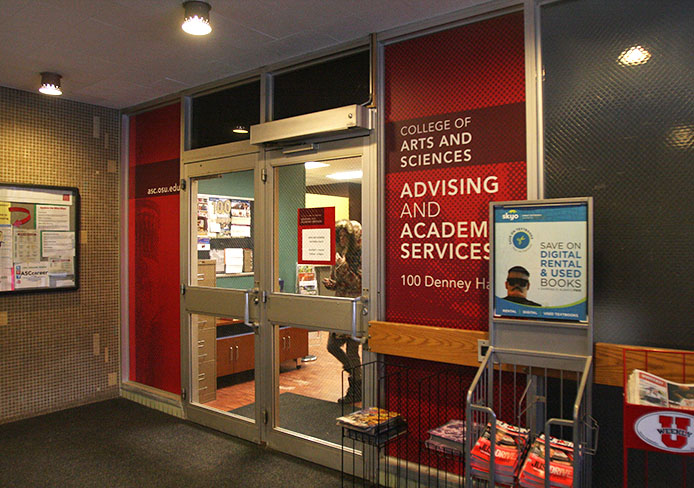
Ohio State used academic advisers’ emails without their knowledge or consent to remind students noncompliant with the COVID-19 vaccine mandate to follow the requirement. Credit: Shelby Lum | Lantern File Photo
Ohio State used academic advisers’ emails without their knowledge or consent to remind students noncompliant with the COVID-19 vaccine mandate to follow the requirement.
According to emails obtained by The Lantern, the university used the advisers’ addresses in a Nov. 15 email to remind unvaccinated students to receive the COVID-19 vaccine or request an exemption in order to schedule classes for the spring semester. The emails stated the university’s intention was to send messages from advisers — who students interact with more — rather than a generic university email in order to draw more attention to the message.
“To achieve compliance with the requirement, you either need to submit documentation of your COVID-19 vaccination or submit a request and receive approval for an vaccination exemption,” the initial email stated. “I care very much about your academic progress and want to help you in whatever way I can.”
University spokesperson Ben Johnson said in an email the university sent emails to around 1,500 students from their individual academic advisers.
“Unfortunately, a mistake was made and advisors were not notified about the messages prior to being sent and we deeply regret this error,” Johnson said. “We are working to establish technical and managerial safeguards to ensure this mistake is not made in the future.”
Johnson said in a statement multiple offices across the university made the decision to send the emails from students’ academic advisers, but did not clarify which offices.
Complaints from advisers and repeated apologies from the Office of Student Academic Success followed the initial email. Damon E. Jaggars, interim vice provost for student academic success and dean of undergraduate education, sent advisers an email explaining the situation and apologizing.
“In hindsight, it is clear that the approach taken (i.e., using advisors’ emails as the conduit for communication with students) was a mistake for many of the reasons you’ve shared with us,” Jaggars said in the email.
A follow-up email to advisers from Kellie Uhrig, associate vice president and chief of staff for the Office of Student Life, and Amy Treboni, senior director of academic advising, stated Student Life used advisers’ emails last year to encourage testing compliance. Individuals who replied to the email would reach the general advising email.
“We want to clarify a misunderstanding that was shared yesterday, in that this effort was not at the direction of senior leadership –– this was an idea that was generated and advanced by our core implementation team,” Uhrig and Treboni said in the email. “All that being said, unfortunately we neglected to notify the advising team before the messages went out, and we are so sorry that this happened.”
In his email to advisers, Jaggars referenced a petition from the faculty asking the university to send a message to students clarifying the messages did not come from them, but a copy of that petition and the number of advisers who signed it is not publicly available. Jaggars said this clarification will not happen.
“We believe that sending another message to students at this point would cause more confusion than clarity,” Jaggars said in an email. “That being said, we will reach out to any individual student who has contacted you with questions.”
Johnson said the university has followed up with advisers and students individually.
Jaggars said in his email to the advisers the university will come up with opportunities to better understand advisers’ perspectives and experiences.


